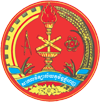Program Background
Cambodia supports a rich biodiversity yet is one of the least known countries worldwide. In addition to forming an important part of the Indo-Burma Hotspot, containing four Global Ecoregions and 40 Important Bird Areas, it possesses many of the best remaining forests and wetlands in mainland Southeast Asia, with countless endemic and globally threatened species. Though knowledge of Cambodian applied ecology and management remains limited, recent years have seen an astonishing rise in the number of species documented and other ecosystem within the country. Much of this research has been led by international ecologists/biologists, due to the chronic shortage of Cambodian research scientists. As a consequence, Cambodia’s current ability to manage its natural heritage is severely hampered both by a lack of skilled people and biological information.
Natural resources are the mainstay of Cambodia’s economy: more than 80% of Cambodians depend directly on natural resources for subsistence and income, and all utilize wild resources such as fish and timber. With pressures on ecosystems/biodiversity and the environment increasing, there is a risk of losing much of this natural wealth forever; to the detriment of present and future generations. As a result, the lack of national capacity and reliable biodiversity data has been highlighted in all recent priority-setting exercises, including the National Biodiversity Strategy and Action Plan (RGC, 2002).
The Masters of Science in Biology, skilled in applied ecology and management (Bio-AEM) was established in 2017 to address the urgent need for qualified applied ecologists to guide Cambodia towards sustainable development, address existing knowledge gaps, and uphold the nation’s commitments to conserving its biodiversity. Partner organizations assisting the Masters programme is mainly supported by European Project – Erasmus+ Program within the consortium of 4 European university partners: University of Toulouse (France), University of Girona (Spain), University of Ghent (Belgium) and University of Natural Resources and Life Sciences (Austria), and 4 South-East Asia university partners: University of Battambang (Cambodia), Can Tho University (Vietnam) and An Giang University (Vietnam). Centre for Biodiversity Conservation (CBC), that is currently running Master of Science in Biodiversity Conservation (CBC), Fauna and Flora International Cambodia (FFI) are the main collaborators for the program implementation.
The Master programme is jointly delivered by Developing curricula for Environmental safety and Conservation of the Biodiversity in SEA (CONSEA) Project and the Royal University of Phnom Penh (RUPP), with assistance from a diverse range of academics and professionals worldwide. This master degree is partly joined with other degree, Master of Science in Biology, skill in Biodiversity Conservation, which was existed since 2005, supported by FFI Cambodia and RUPP. These two programs will share some coursework which students from both programs can jointly take course together in specific courses

Contact Info

Program Coordinator:
- Dr. Ith Saveng
- Programme manager
- Tel: (855) 12-507-492
- Mr. Kheam Sokha
- Programme coordinator
- Tel: (855) 92-299-474
- Mr. Phauk Sophany
- Programme coordinator
- Tel: (855) 16-941-231
- Address:Room 415, 4th Floor, Main Campus, Department of Biology, Faculty of Science, Royal University of Phnom Penh, Russian Federation Blvd., Touk Kork, Phnom Penh 12101 Cambodia
Scholarship

For students who are looking for a scholarship, RUPP provides a number of sources of scholarships. read more...
